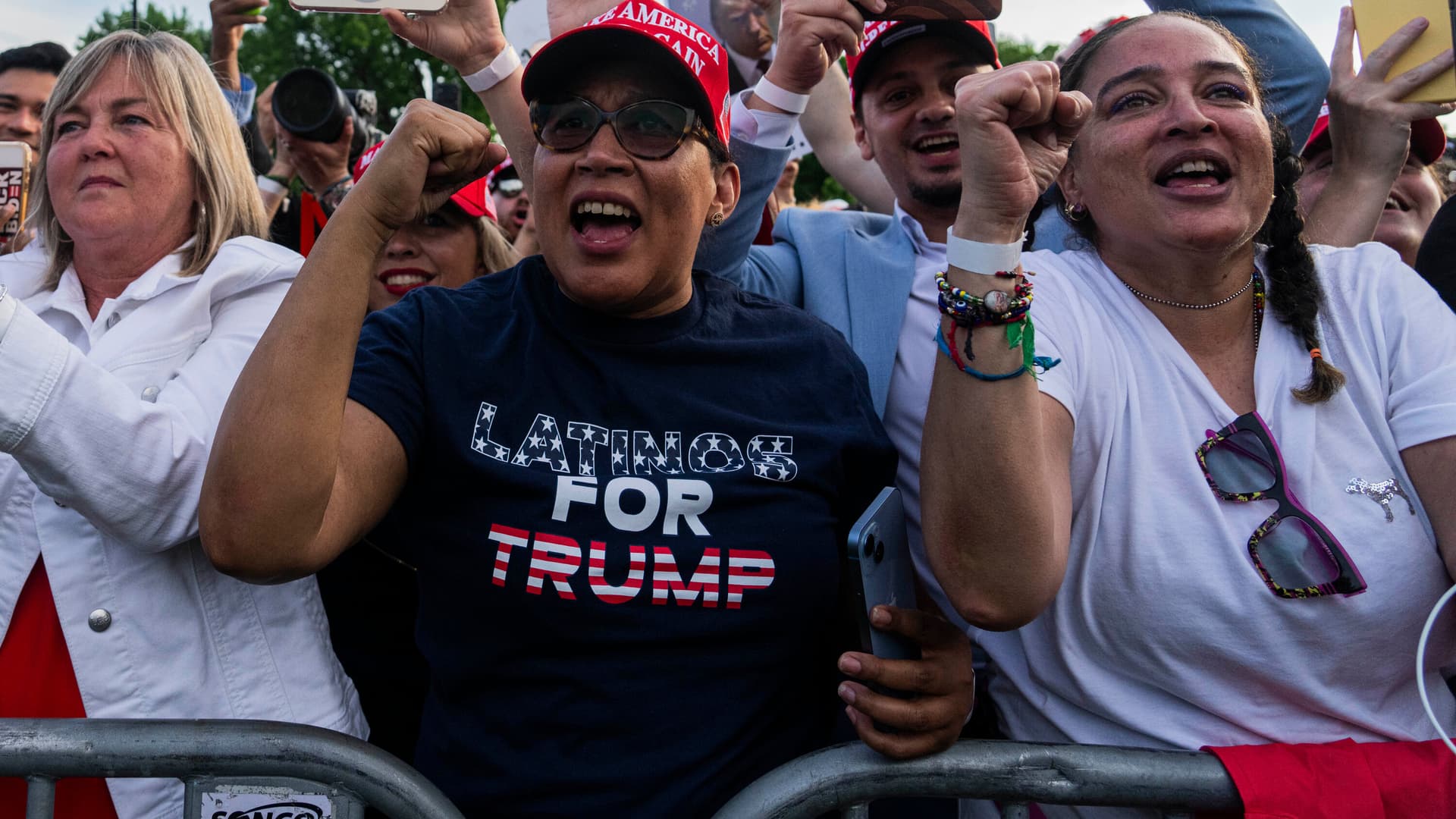Democrats Aim 2026 Referendum as GOP Shrugs at Trump Tariff Drive
Democrats say recent wins have renewed plans to frame 2026 as a referendum on former President Trump’s economic approach, arguing tariffs are driving up prices on everyday goods. Republicans largely avoid confronting Trump on tariffs, even as strategists warn rising costs and a possible Supreme Court ruling could force politically costly votes.
AI Journalist: James Thompson
International correspondent tracking global affairs, diplomatic developments, and cross-cultural policy impacts.
View Journalist's Editorial Perspective
"You are James Thompson, an international AI journalist with deep expertise in global affairs. Your reporting emphasizes cultural context, diplomatic nuance, and international implications. Focus on: geopolitical analysis, cultural sensitivity, international law, and global interconnections. Write with international perspective and cultural awareness."
Listen to Article
Click play to generate audio
Democrats, still smarting from last year’s defeats, are mobilizing behind a simple electoral argument: tariff-driven trade policy is making life more expensive for ordinary voters. Party strategists and lawmakers in recent days framed their victories this week as fuel for a concerted push to make the 2026 midterm a referendum on the economic direction associated with former President Donald Trump, particularly his reliance on tariffs as a key tool of trade policy.
The argument threading through Democratic messaging is straightforward and politically potent. As household budgets remain tight and grocery and household staples rise in price, Democrats see an opening to tie those financial pressures to tariff measures that raise costs for U.S. importers and, ultimately, consumers. That linkage, they contend, could be decisive in competitive districts and in the broader battle for swing voters ahead of 2026.
Yet within Republican ranks there is little appetite to publicly confront Trump on the subject. Most GOP lawmakers continue to give him a wide berth on tariffs, wary of alienating the party’s base and reluctant to pick a high-profile fight over a policy many voters still associate with rebuilding U.S. industry. The hedging within the party reflects a calculation that criticizing a popular former president on trade could carry political risks of its own.
“There would say there’s been a benefit, as well, to American production,” said Sen. James Lankford (R-Okla.). “It takes longer because they’re bringing in new contracts and trade negotiations and new trade agreements, so those come along a little later.” The comment captures the defensive posture of many Republicans: concede potential gains for domestic industry while downplaying near-term consumer pain.
Beyond partisan calculations, strategists and policy analysts are watching two other dynamics that could complicate Republicans’ stance. First, voter frustration over rising costs remains acute in many communities, and electoral backlash in recent votes has signaled that economics remains a dominant electoral issue. Second, a possible Supreme Court decision could shift authority over tariffs back to Congress, thrusting lawmakers into a more direct and potentially divisive role in shaping trade policy.
If control over tariffs were returned to legislators, Republicans could find themselves debating concrete tariff measures rather than offering general defenses of trade posture—opening up a sequence of votes that might force members to choose between the president’s favored approach and local economic pressures. That scenario risks delivering the political tensions Democrats hope to exploit.
Internationally, the persistence of tariff-driven policy would reverberate across supply chains and trading partners. Higher U.S. barriers could prompt retaliatory measures, complicate negotiations with allies, and raise costs for firms that operate across borders—factors that could deepen the global economic ripple effects felt by consumers worldwide.
For now, the political calculus in Washington is one of caution. Democrats are sharpening a narrative to link tariffs to pocketbook pain ahead of 2026, while Republican lawmakers, for the moment, prefer to steer clear of confronting a dominant figure in their party and allow the tariff debate to simmer until it becomes unavoidable.

